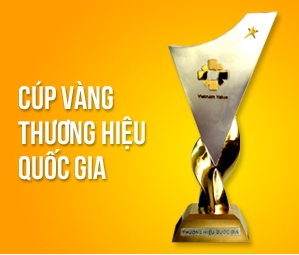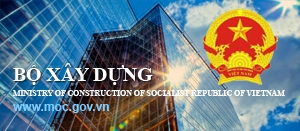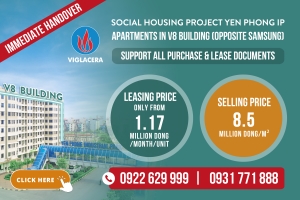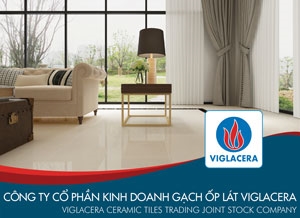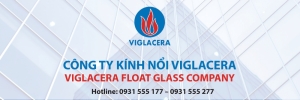Viglacera Corporation-JSC received the Certificate of Merit from the Minister of Construction
On the morning of December 12, 2017, Viglacera Corporation-JSC was awarded the Certificate of Merit by the Minister of Construction for outstanding achievements in unbaked building materials development program to year 2020 in accordance with Decision No. 567/QĐ-TTg dated 28/4/2010 of the Prime Minister.
The Vietnam Building Materials Conference 2017 chaired by the Ministry of Construction, was attended by Deputy Prime Minister Trinh Dinh Dung, Minister of Construction Pham Hong Ha, leaders of Ministries, Central and Local departments.
.jpg?width=800&cache=always&mode=crop&iefix=true&speed=2)
Deputy Prime Minister Trinh Dinh Dung and Minister of Construction Pham Hong Ha find inforamtion about Viglacera energy saving glass products before the opening ceremony.
Speaking at the opening ceremony, Minister of Construction Pham Hong Ha emphasized: The field of building materials production in our country has changed significantly, technology is increasingly modern, gradually integrate with the general level of region and the world. Some enterprises have advanced production skills and prestige in the market.
Implementing the program of developing unbaked building materials under the direction of the Prime Minister (Program 567), most localities have taken decisive steps in the removal of hand-made brick kilns, improvement of handicrafts and clay brick production as well as encouraged the development of unbaked building materials production and consumption.
The program has achieved the goal of "Developing production and using unbaked building materials to replace baked clay bricks to 20-25% by 2015". However, the progress and quality of the program has not met the requirements, the quantity and types of unbaked building materials are not many, not diversified and not widely used ...
The production of various types of tiles (ceramic, granite, cotto) increased rapidly. In 2010, the production capacity is only 378 million m2, by 2016, the production capacity has increased to 540 million m2 (increased 50% compared to 2010), met the domestic demand and export of about 20 - 25% total capacity. The technology and equipment are synchronously invested, developed from developed countries with the size of each factory up to tens of millions m2, module capacity for each production line from 2 to 3 million m2.
.jpg?width=800&cache=always&mode=crop&iefix=true&speed=2)
Viglacera's high quality tiles have received much attention from participants.
By the end of 2016, the total designed capacity of sanitary wares production plants reached 14.7 million products per year (increased 40% compared to 2010), met the domestic and export demand. Viglacera possessed modern production technology, advanced automation and low fuel consumption. The products of the company are high quality, diverse in shape, size, design, color and characteristics used. Many types of products reach the technological level of the leading advanced countries in this field. Current domestic production capacity meets domestic and exports demand about 30-35% of designed capacity.
In building glass sector, total annual production capacity of domestic factories is estimated at 4,080 tons/day equivalent to 285 million square meters QTC per year, of which float glass accounts for 3,550 tons/day, equivalent to 248 million square meters QTC (7 factories) and rolled glass accounts for 530 tons/day, equivalent to 37 million square meters QTC. In addition to the existing factories, there are currently 5 floating glass projects with total capacity of 2.600 tons/day, equivalent to 182 million m2 QTC per year. As such, the total production capacity of flat glass in Vietnam will be 6,680 tons / day, equivalent to 466 million m2 of QTC / year. Thus, when these 5 projects come into production, the total production capacity of flat glass in Vietnam will be 6,680 tons/day, equivalent to 466 million m2 QTC per year.
.jpg?width=800&cache=always&mode=crop&iefix=true&speed=2)
Features of Viglacera Energy-saving glass are introduced directly to participants of the Ministry, departments and leaders of building materials enterprises nationwide.
In the coming time, the Ministry of Construction will give more guidelines to related units to continue research and technological innovation such as energy saving glass used in the building; coatings on glass walls, facing materials for the constructions; the improvement of reducing energy consumption technology in the manufacture of glass, tiles and sanitary wares; the production of new materials, unbaked materials to replace clay bricks in building to save resources, friendly to environment; the maximum use of industries’ waste types to produce building materials ...
Viglacera continues to raise its position in the top 500 largest enterprises of Vietnam in 2017
(20/01/2018)Lượt xem : 2929On 19/01/2018, Viglacera Corporation-JSC was honored to be on the top 500 largest enterprises of Vietnam in 2017. The results were based on independent research and evaluation of Vietnam Report.Read moreViglacera Corporation-JSC first reached the combined profit before tax of just over 1,000 billion VND in 2017.
(09/01/2018)Lượt xem : 3632On the morning of Jan 9th, 2018, Viglacera Corporation-JSC held a conference to evaluate the results of production and business activities in 2017 and to deploy business and investment plans in 2018. In 2017, Viglacera made significant changes in the comprehensive restructure of the Corporation, meet the set targets and continuously positioned themselves as one of the leading construction companiesRead moreViglacera Sanitary wares–Faucet Department implement its business plans in 2018
(05/01/2018)Lượt xem : 5723On the morning of Jan 3rd, 2018, leaders of Viglacera Corporation-JSC attended the Conference at Viglacera Sanitary Ware JSC’s head office which was held by the Sanitary wares – Faucet Department about implementation of its business plans for 2018.Read moreViglacera attended the Cambodia Construction Industry Exhibition 2017
(01/12/2017)Lượt xem : 3340From November 30th to December 2nd, Viglacera Corporation participated in Cambodia Construction Industy Expo 2017 which is the largest international annual construction and industrial exhibition held in Cambodia. with the participation of more than 35 countries in the world.Read moreDong Van IV Industrial Park - Viglacera has successfully attracted large Korean electronics manufacturers
(14/11/2017)Lượt xem : 3209With favorable location, positive policy support mechanisms, and professional management of Viglacera, after one year of construction, Dong Van IV Industrial Park has attracted 10 enterprises, mostly in the field of electronics, with a land lease area of nearly 40 hectares.Read moreViglacera launches new collection branded Eurotile
(24/10/2017)Lượt xem : 3492With the event "My Duc ceramics - meet again", on Oct 21st and 22nd 2017 in Ho Chi Minh City, was held by Viglacera JSC to meet partners, loyal customers and architects and also launch the new product ceramic tiles branded Eurotile.Read more



.jpg?width=800&cache=always&mode=crop&iefix=true&speed=2)
